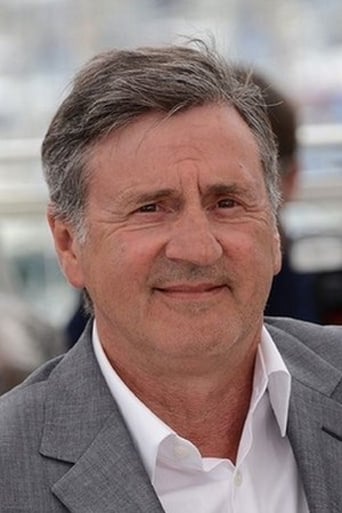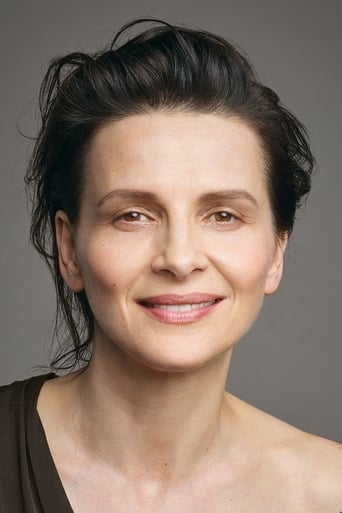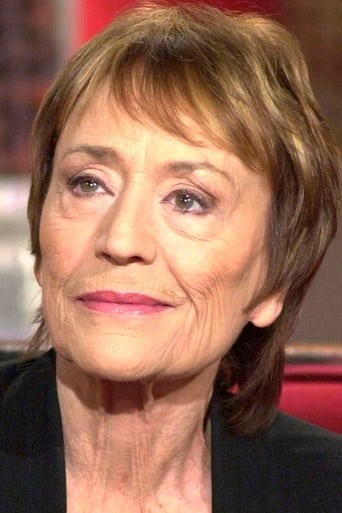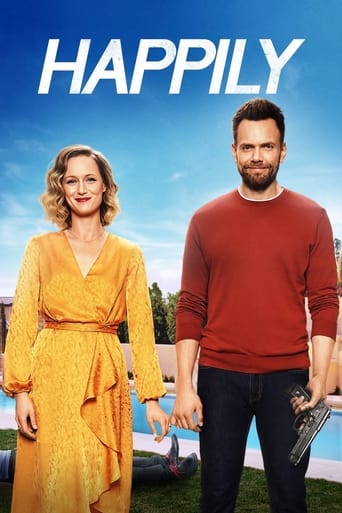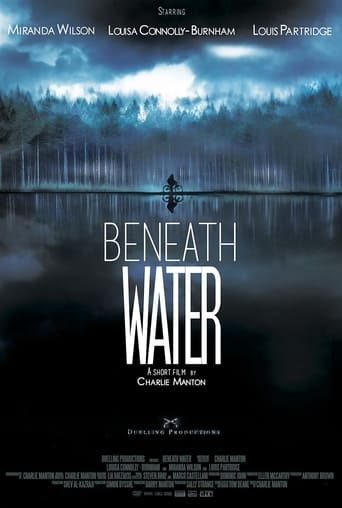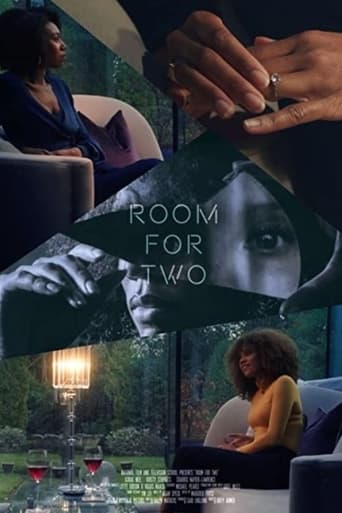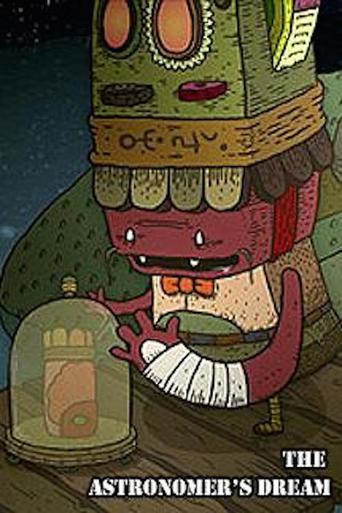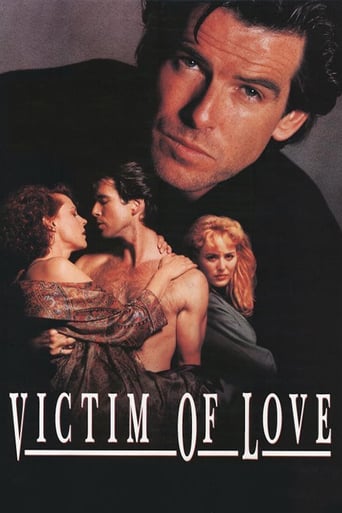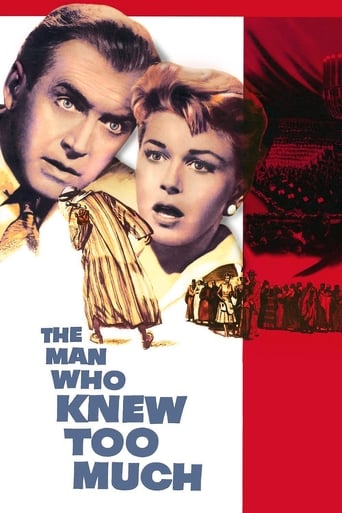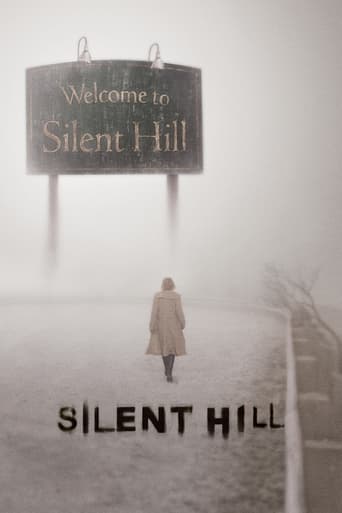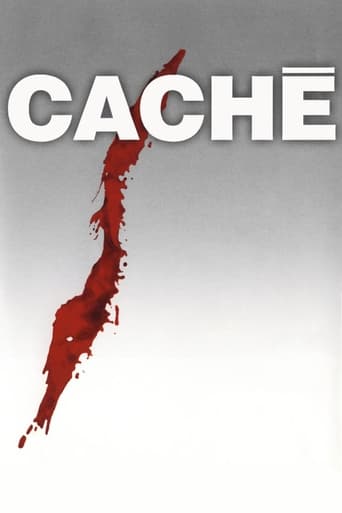
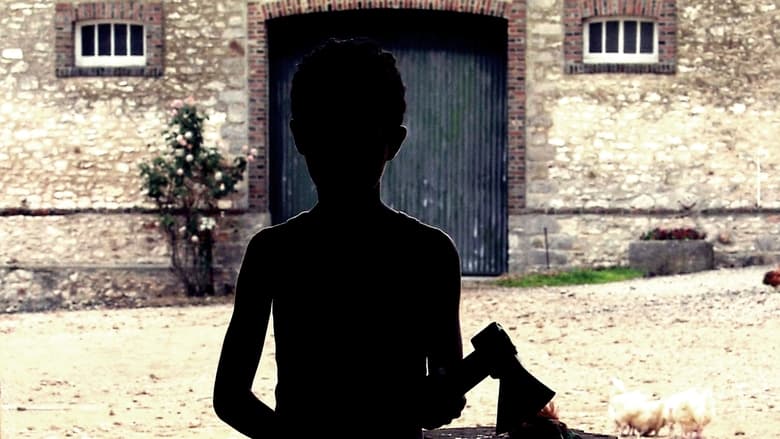
Caché (2005)
A married couple is terrorized by a series of videotapes planted on their front porch.
Watch Trailer
Cast
Similar titles
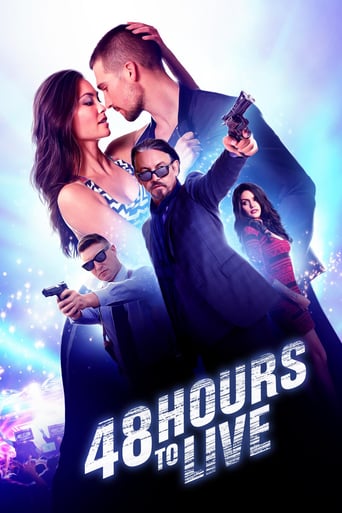
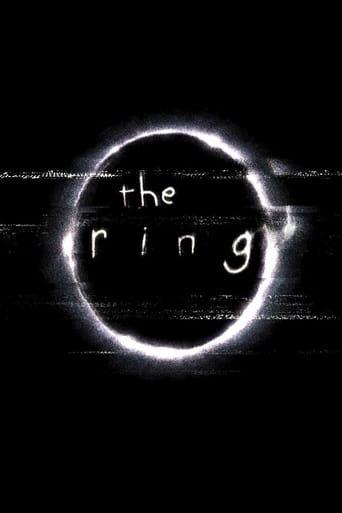
Reviews
Surprisingly incoherent and boring
Really Surprised!
Fresh and Exciting
It's funny watching the elements come together in this complicated scam. On one hand, the set-up isn't quite as complex as it seems, but there's an easy sense of fun in every exchange.
Movie's director plays much too much with viewers suggesting illogical events or matters just in order to get them lost. Besides, the main character's reactions can be seen as too caricatural and even unbelievable. The end opens up other dimensions in the understanding of the story which, once again, is merely another trick to make people think about a movie which is simply irrelevant most of the times. Sorry to say it, but suiciding because of a childhood trauma, although having built one's own life and being a father, is at the minimum extremely depressing and absurd if not completely impossible in reality.
Haneke explores a number of themes that he has kept a constant focus on since the beginning of his career. The idea of familial discontent is thoroughly explored through Cache. Much like in 71 Fragments of a Chronology of Chance, the disconnect of the family is a prevalent in Cache, as well. As in his previous films, Cache also shows a family that shares no meaningful interaction while sharing meals together. In fact, the only time there is any joy expressed at the meal table is when a dinner party takes place in the family home. It is only when people that live outside of the home come into it, that any happiness seems to exist there. The couple and their only child share no affectionate interchanges, nor do they share any deep conversations. They live together, their geographic circumstances dictate that they spend a certain amount of time together since they cohabitate, but they are all but strangers in their existence. The marriage we are invited to witness is also obviously strained. Not simply a situation of comfort that has settled in between two married people who have long ago witnessed their spark snuffed out, but the body language between the couple indicate their relationship is troubled. The subtle ways Haneke expresses their discontent are masterful. One can discern, simply by the way the couple passes each other in their kitchen, that some issue is brewing beneath the surface of their relationship. It is not clear to the audience what has happened between them, but what we are able to recognize is that the couple themselves have not properly worked through the issue themselves. Haneke's audience is shown further familial disconnect when one member of the family, Georges (Daniel Auteuil) visits his mother, whom it is clear he hasn't seen in some time and struggles through conversation with her. Georges is there simply to gain an understanding that he thinks will help him solve the issue facing him currently of the videos being left on his doorstep by an unknown person. Georges believes the key to discovering the identity of the person leaving the tapes lies in his past, leading him to consult his mother about his childhood. In essence, Georges' visit with his mother is akin to that of a business meeting. He doesn't greet his mother especially warmly, he doesn't stay and chat after obtaining the information he sought, he simply leaves, as though the one responsible for his existence is another face in the crowd. What Haneke is especially adept at through Cache, is his ability to expose how disconnected we are from each other, even when one is surrounded by people. The lack of discussion taking place through Cache, even when multiple people shared a space together was especially striking. Haneke's ability to highlight such disconnection, brought to mind instances in my own life wherein several people I knew shared a car ride, or room together and each had little to say to each other. Often such disconnect is due to the overuse of smartphones creating an inability to engage with someone that is, in body, directly in front of you rather than communicating with through a screen. Such disconnect can be caused by a number of things, however, and Haneke's ability to force the audience to examine this truth speaks to his strength as a psychological and philosophical filmmaker.Still interested in the average person's desensitization to violence, Haneke makes a point of showing the casual ways in which human beings interact with death and destruction on a daily basis. Amidst an argument between Georges and his wife Anne (Juliette Binoche), a gruesome piece of news comes across their television showing people who were killed in grotesque detail. Not only are Georges and Anne unphased by the images, but they also continue their fighting, only escalating the violence in their own home. Later on, soldiers' deaths and the carnage of war play out on screen for the entire family to see and no one is sickened by the sight. Haneke expertly reminds us that showing such minimal reactions to intense violence is not normal, and only seems as such because it is so often shown. By spending so long showing the mundane daily activities and the repeated mechanic repetition that makes up most of our lives, Haneke reveals the number of things that we do that, when scrutinized, make little sense. We should not be able to watch human beings dying in front of us, yet, due to the 24-hour news cycle and the fact that death is what makes the news, we have grown accustomed to witnessing that which is truly heinous. Cache is unique because it explores many facets of human life that don't make sense if truly given thought. Violence, and its impact on human beings, is a constant idea explored in the films of Michael Haneke. What he also analyzes through Cache is the fear of constant surveillance and the paranoia that brings. As little sense as it makes that every waking moment of life is monitored by cameras, that's exactly the world we are entering into as technology progresses. We carry with us devices that constantly track our location, adapt to our search patterns, and have the capability to record our voice, or the voices of others in an instant. What once seemed illusory is now commonplace, to expect that every movement made outside of your home will be tracked by cameras positioned to never miss a single step. Privacy has gone by the wayside, and largely voluntarily, as the average person has multiple social media platforms they utilize bringing people into their personal lives and openly sharing details strangers would have never before been privy to. Despite the fact that we invite such transparency with our own lives, it is the times we do not invite it that makes us uncomfortable. For instance, Georges is filmed for his work, constantly inviting an audience to view him and offer scrutiny. The tapes he finds on his doorstep, however, when it is made clear that someone knows his comings and goings and films his front porch without George's nor his family's knowledge is unwelcome. Haneke invites fierce introspection here, forcing us to consider that our own relationship with technology may be a hypocritical one.The nuances of ethnic differences is another mainstay in Haneke's work. In Cache, however, Haneke more fully explores the racial differences among people while simultaneously offering criticism to the class structure and how both influence our relationships with others. There is an intense and thought-provoking scene wherein a disgruntled Georges, crossing the street, is threatened by a person of color on a bicycle whom Georges feels was riding by too close to him. The two share a heated exchange before being goaded by Anne into agreeing that they were both in the wrong, and should each proceed into the street with more caution in the future. Race is never mentioned throughout their argument, which is actually the most poignant statement Haneke could have made. It seems as though Georges selected that encounter in order to blow off some steam, and picked a person he deemed socially beneath him as the target of his abuse. In addition to that troubling probability, Haneke is also making a powerful statement on social liberalism. It is the person that describes themselves as socially liberal that will pride themselves on not describing a person using their race or ethnicity. Who knows, however, what occupies the private thoughts of these social liberals. Does Georges ever think anything racist, and simply refrain from vocalizing it? Haneke also calls the viewers attention to race and how we interact with the racial tension around us by constantly highlighting such issues on the television sets constantly playing in the background. Perhaps Georges' social status and class are all that prevents him from shouting racial obscenities when he engages in altercations on the streets. This focus on this particular snag of social liberalism is one largely ignored but adeptly explored by Michael Haneke.Michael Haneke is a filmmaker who consistently wants to take his audience to a higher plane. Philosophy and psychology, though governing the human condition, are often overlooked as thematic elements in film. Haneke's direction focuses solely on the larger contemplations of existence in a way that encourages the audience to think about their own place in the world and how they interact with others. Crafting films that provide for such a breadth of self-analysis shows Haneke's fondness for his audience. By so strongly encouraging such self-reflection, watching Haneke's films is always a profoundly meaningful experience. Michael Haneke depicts the most mundane parts of existence, the banal chores, and the least exciting aspects of life. These monotonous moments are not the ones we choose to fill our photo albums with, but they do make up the largest portions of our lives. Inviting such introspection, and spending so thorough a time filming the long takes of the most tedious tasks, Haneke is not a filmmaker visited for a quick thrill. One of my favorite scenes I watched this year was in Twin Peaks: The Return where the audience witnesses a nearly three-long scene wherein someone is sweeping a floor. The only point of interest comes briefly in the scene in which someone makes a phone call in the background, providing little details. I adore this scene so much because it is so unexpected. Watching scenes such as this also requires the audience to slow down and be more present in the moment they are witnessing. Michael Haneke makes entire films based on the notion of slowing an audience's expectations and forcing them to turn the mirror on themselves and examine their collection of items stored in a hidden or inaccessible place, or, their cache.
Michael Haneke is a true genius when it comes to directing films and Caché (Hidden) is another one of he's brilliance. The story to Caché (Hidden) is about Daniel Auteuil character George, who hosts a TV literary review. Then suddenly he starts receiving packages containing videos of himself with his family-- shot secretly from the street--and alarming drawings whose meaning is obscure. He has no idea who may be sending them. Gradually, the footage on the tapes becomes more personal, suggesting that the sender has known Georges for some time. Georges feels a sense of menace hanging over him and his family but, as no direct threat has been made, the police refuse to help. Now I've seen many movies like this where it involves a person being stalked or being threaten by a known or unknown figure. Some of those movies normally have that realistic feel to it that the movie really needs if it wants to give the viewer interested and not feel fake. This can easily be pulled off if it's directed fantastically, as the director can build up the suspense and create a sense of realism to the films atmosphere to make it more effective. Some movies can pull it off successfully but some sadly don't. But Caché (Hidden) takes all the best elements that I just named off and put it into one movie that's truly flawless, because Caché is one of the best movies I've seen from 2005. The only movie I've ever seen from Michael Haneke is the 2012 film ''Amour' that I saw back in early march this year. I haven't seen many of Michael Haneke movies yet, but I will get around to watching them as I feel I need to watch them in a special time when I'm not so busy. For what I've seen in Amour really showed me the talent and the brilliance that Michael had as I felt that every scene and every second of the movie matted, and it got me interest in he's other films right afterwards, and I'm so glad I picked Caché, because Michael Haneke directing in this movie was absolutely spectacular and probably the best directing I've seen in a while. The reason why I think the directing in this movie was so excellent is because while watching the movie I got that feeling of someone breathing down your neck kind of feel that only happens when everything is shot, acted, and directed excellently. Michael really injects the sense of anxiety and the feeling of being watched, and that was through the camera work and the directing. All throughout the movie I thought I was watching an Alfred Hitchcock movie, because this movie got the Hitchcock brilliance written all over it; you could say it's a modern day Hitchcock film that Alfred himself never directed. I'm so glad that Michael won best director at the 2005 Cannes Film Festival because he absolutely deserves it. Magnificent work Michael Haneke. Daniel Auteuil and Juliette Binoche are both unknown actors to me as I haven't seen any movies that they stared in and this is basically my first time I get to see these two act, and let me just say that I was completely amazed by their performance in this movie. When I saw these two act in a scene together I didn't see two actors delivering lines to each other, I only saw a couple trying to deal with their issues and having a real conversation that troubled couples will have. Daniel Auteuil and Juliette Binoche sold they performance in this movie and they were brilliant. Another thing that made this movie truly great is the writing as it was absolutely astonishing. The movie is about 117 minutes long and those 117 minutes you get to know and deeply understand the characters of the film. Michael Haneke wrote the movie and within a flash he gives away a lot on the character's just by the movement, the way their act, and how people speck made the characters and the environment that the movie is set in feel realistic. The writing made everything seem so down to earth and Michael Haneke wrote this movie brilliantly that he put his soul and heart into this work. Caché (Hidden) dose stay true to it's title, what I mean is that the movie dose have it's hidden messages that I know a lot of viewers (Including me) may not catch on the first viewing. Yes it's one of those 'Need to watch more than once' kind of movie that I honestly don't mind re-watching, but some may not. After the movie was over I straight away re-watched it because I felt like I missed something and I was right, the things I missed on the first viewing really made the story and the movie itself even more fantastic, because the movie only gives little hints on things that relate to the characters past life and the movies theme. The movie can be analyzed by many ways possible, as people can make creative and challenging theories for this movie with the films hidden secrets that lies beneath. That's just the brilliance of what a movie can do and that's making you come back and learn more. Now for the problems: I have none.
Austrian screenwriter and director Michael Haneke's eight feature film which he wrote, premiered In competition at the 58th Cannes International Film Festival in 2005, was screened in the Masters section at the 30th Toronto International Film Festival in 2005, was shot on locations in France and Austria and is a France-Austria-Germany-Italy co-production which was produced by producers Veit Heiduschka and Margaret Ménégoz. It tells the story about a 46-year-old talk show host named Georges Laurent who lives with his wife named Anne who is a book publisher and their son named Pierrot who is a student, in a house in Paris, France. After having received obscure drawings and videotapes indicating that he and his family is observed, Georges reports it to the police who are prohibited from doing something as nothing has happened and then decides to solve the case on his own. Distinctly and precisely directed by Austrian filmmaker Michael Haneke, this finely paced fictional tale which is narrated from multiple viewpoints though mostly from the main character's point of view, draws an increasingly intriguing portrayal of a French father and husband whom after learning that someone anonymous is trying to tell him something through enigmatic messages begins remembering his relationship as a six-year-old child during the Algerian War of Independence in the early 1960s with an immigrant named Majid whom his parents adopted. While notable for its naturalistic milieu depictions, reverent cinematography by cinematographer Christian Berger, production design by production designer and actor Emmanuel de Chauvigny and production designer Christoph Kanter, efficient film editing by film editors Michael Hudecek and Nadine Muse and use of sound, colors and light, this character-driven and narrative-driven story about a conscious, intentional and life-altering lie which has marred the life of an Algerian father whose son has begun communicating in clandestine ways with the person he regards as responsible for his and his family's sufferings, depicts a perspicaciously internal study of character and contains a timely score by composer Ralph Rieckermann. This ambiguously heartrending, somewhat historic and conversational drama from the mid-2000s which is set mostly in the capital city of France in the 21st century and where a son is with his friends and at swimming practice and his mother starts spending her time with a friend named Pierre whilst her intellectual spouse whom is not willing to recognize his own wrongdoing accuses a childhood acquaintance of seeking vengeance, is impelled and reinforced by its cogent narrative structure, substantial character development, subtle continuity, examination of moral injustice and the understated and involving acting performances by French actor, screenwriter and director Daniel Auteuil, French actress and artist Juliette Binoche and French actor Maurice Bénichou. A densely psychological, quietly reflective and acutely concentrated narrative feature which gained, among numerous other awards, the Prize of the Ecumenical Jury at the 58th Cannes Film Festival in 2005.
